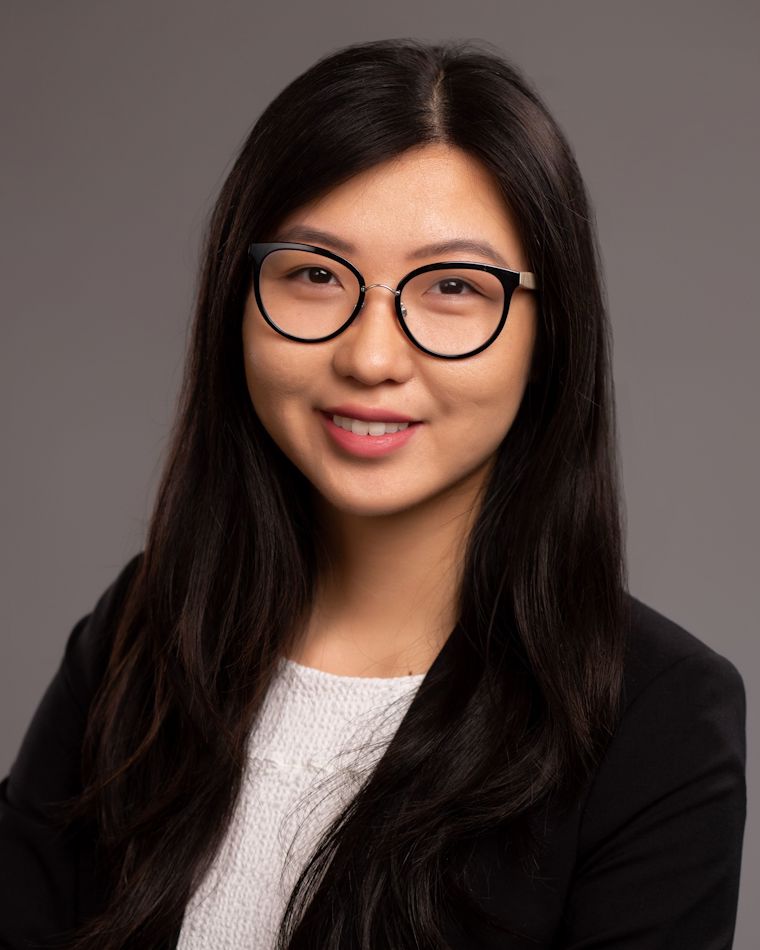This interview is one in a series of interviews with recipients of the 2024 ACGME Awards. The awardees join an outstanding group of previous honorees whose work and contributions to graduate medical education (GME) represent the best in the field. They will be honored at the ACGME Annual Educational Conference, taking place March 7-9, 2024, in Orlando, Florida.
Dr. Leslie Chang is one of the inaugural recipients of the 2024 Lewis Blackman Patient Safety Award. One of now two ACGME Awards granted to residents and fellows, the Lewis Blackman Patient Safety Award recognizes residents and fellows who have worked to implement strategies to improve the understanding of and show demonstrable improvement in patient safety in their Sponsoring Institution or residency/fellowship program. She is chief resident in radiation oncology at Johns Hopkins University. Dr. Chang described how her interest in medicine led her to choose radiation oncology and to focus her efforts on improving communication among the providers in her department.
ACGME: Why did you want to become a physician?
Dr. Chang: I have always been interested in medicine and during my teenage years my grandfather underwent treatment for and ultimately passed away from lung cancer. This experience ignited a deep interest in oncology, motivating me to explore the field further. In college, I had the opportunity to shadow a palliative care physician, which not only solidified my commitment to medicine but also provided me with a profound appreciation for the multidisciplinary approach to patient care.
ACGME: What, so far, has been the most rewarding part of your residency/fellowship?
Chang: The most rewarding aspect of my residency journey has undoubtedly been the opportunity to actively contribute as part of the care team. As a resident, I have been immersed in an environment that values collaboration and teamwork. My progression from a PGY-2 to a chief resident in radiation oncology has been a remarkable journey, marked by a tangible growth in knowledge and skills. Being entrusted to make treatment decisions with the support and guidance from attending physicians and assisting patients and their families on their challenging cancer journeys has been incredibly meaningful.
ACGME: What has been the most challenging?
Chang: I have had the opportunity to train at an institution and geographic location where patients present with a diverse spectrum of disease histology and socioeconomic backgrounds. This experience has granted me a firsthand understanding of the profound impact of the social determinants of health. Coordinating care for individuals with limited social and economic support has proven to be a formidable challenge. I've deeply appreciated the invaluable assistance provided by our dedicated social workers and care coordinators. Their unwavering commitment to working within our care team has been instrumental in addressing the multifaceted issues faced by patients, emphasizing the critical role of a comprehensive and collaborative approach to patient care.
ACGME: What innovation/improvement did you implement in your program? How do you see it as improving patient safety in your program/institution overall? (We have it on the nomination form, but we’d like to explain in your own words.)
Chang: The field of radiation oncology relies on interdisciplinary coordination of treatment planning between physicians, dosimetrists, medical physicists, radiation therapists and nurses. We also take part in a peer review conference to evaluate radiation treatment plans; however, there is no standardized process to perform these reviews. Safety checklists have been used in multiple healthcare specialties to improve reliability of care and reduce adverse events. I led the development and implementation of a new peer-review workflow within our department to utilize a peer-review checklist and create a longitudinal registry to systematize the routine and improve communication between providers. My goal throughout this process is to improve detection of errors and create a culture for safety through communication.
ACGME: What does it mean to you to receive this award - especially in this inaugural year?
Chang: Receiving the inaugural patient safety award is a tremendous honor, and I am grateful for the recognition and support from the ACGME. The acknowledgment of residents and fellows leading initiatives in patient safety reflects a shift towards empowering the next generation of physicians to actively contribute to enhancing the quality of patient care. I am hopeful that this momentum continues to encourage residents' and fellows' engagement in patient safety initiatives. By nurturing and supporting their interest in this critical aspect of health care, we can collectively improve patient outcomes.
ACGME: What advice would you give to other residents/fellows who are looking to either replicate your improvement or implement an original idea of their own in their own program?
Chang: It is critical to find mentors and sponsors who not only believe in your vision but can also provide guidance throughout the journey. Quality improvement often involves navigating a series of ups and downs, and encountering roadblocks is a normal part of the process. Having stakeholders who are genuinely invested in your success becomes invaluable during these challenging moments. Finding a supportive network, both within and outside of your institution, to share your experiences and collaborate by brainstorming ideas can be extremely helpful.
Learn more about the ACGME’s Lewis Blackman Patient Safety Award and nominate a resident or fellow for the 2025 Award – nominations are due by March 27, 2024. Registration is still open for the 2024 ACGME Annual Educational Conference – learn more and register today on the conference website.

